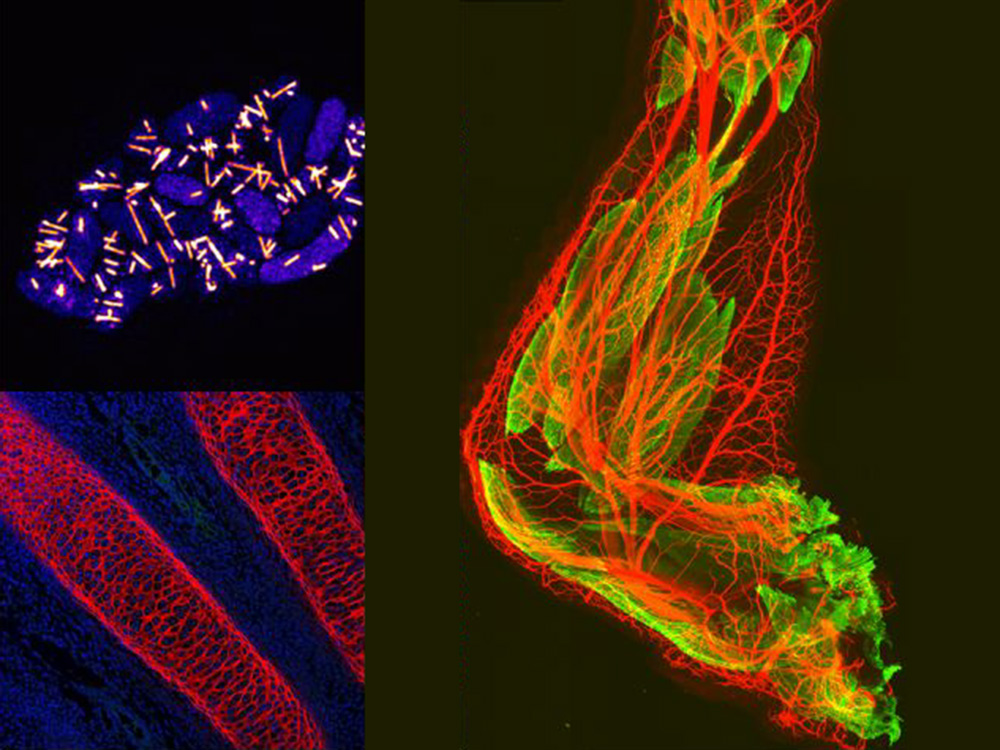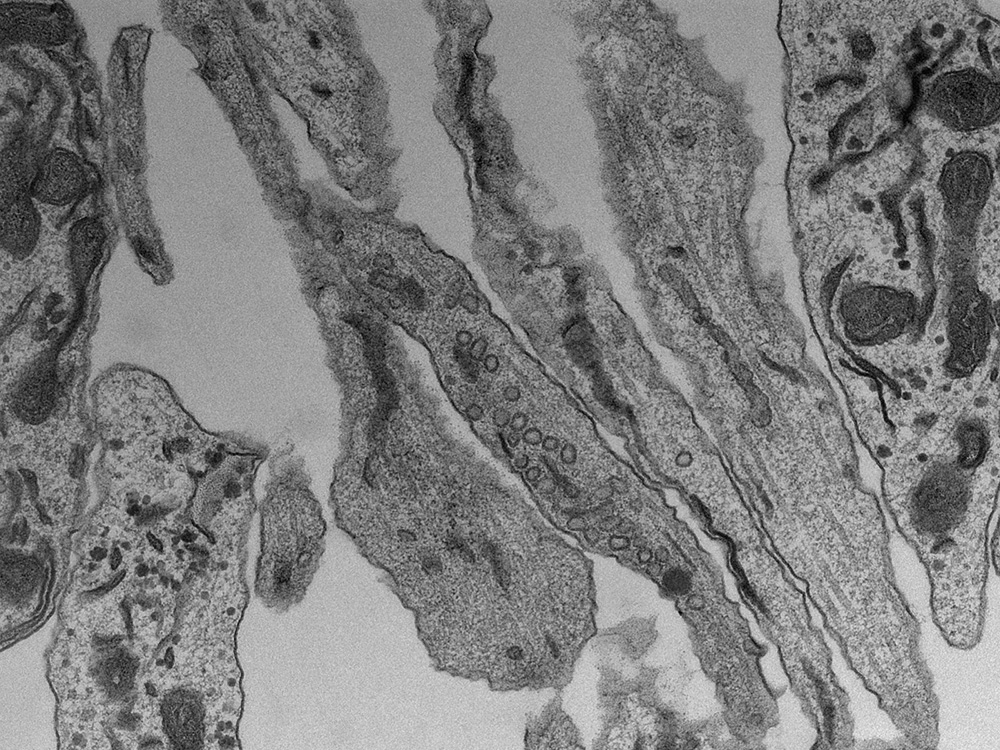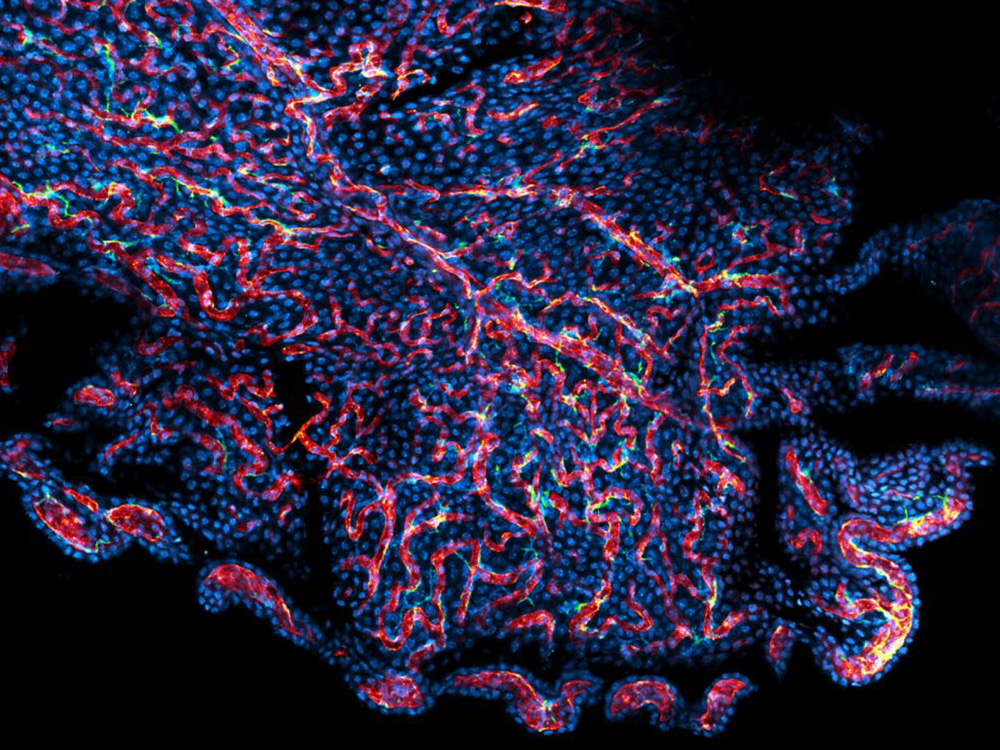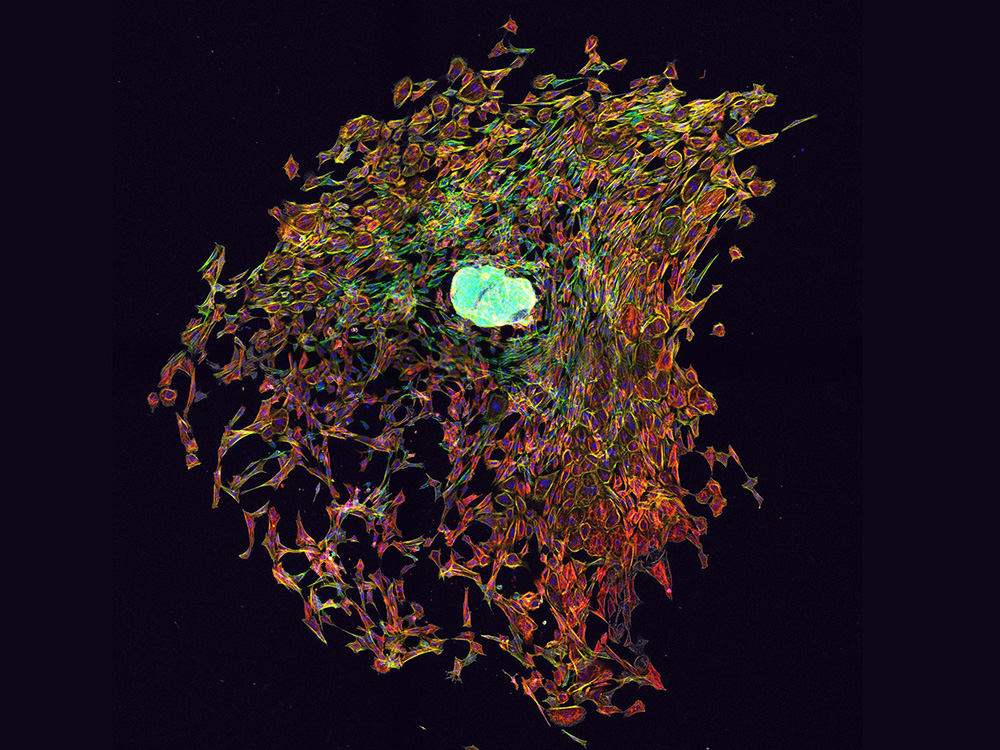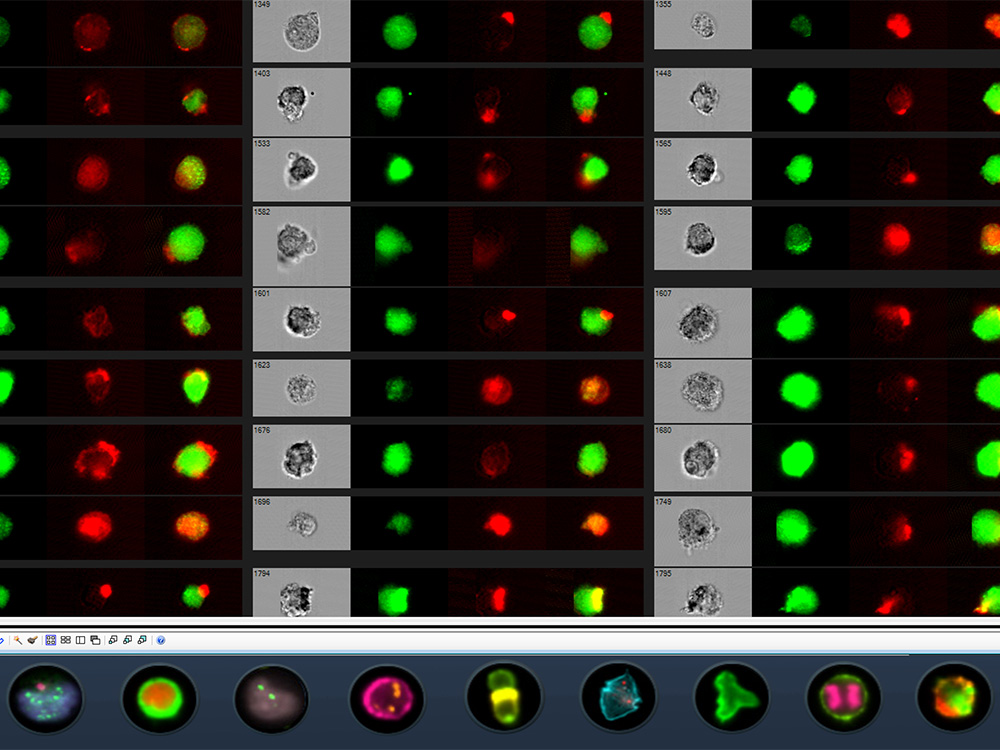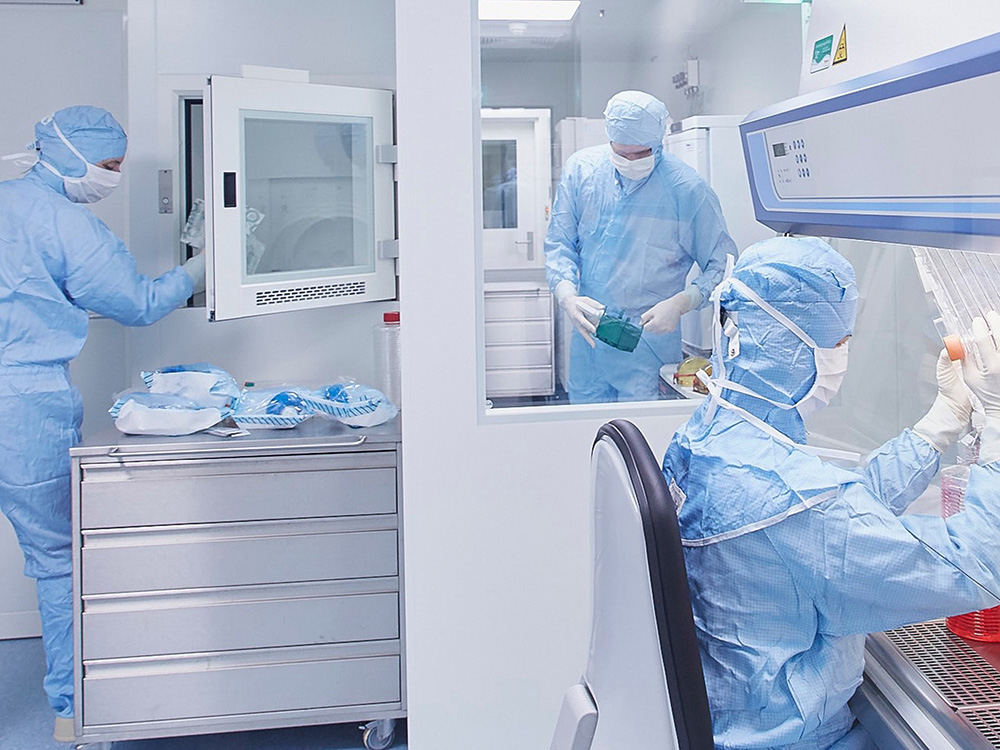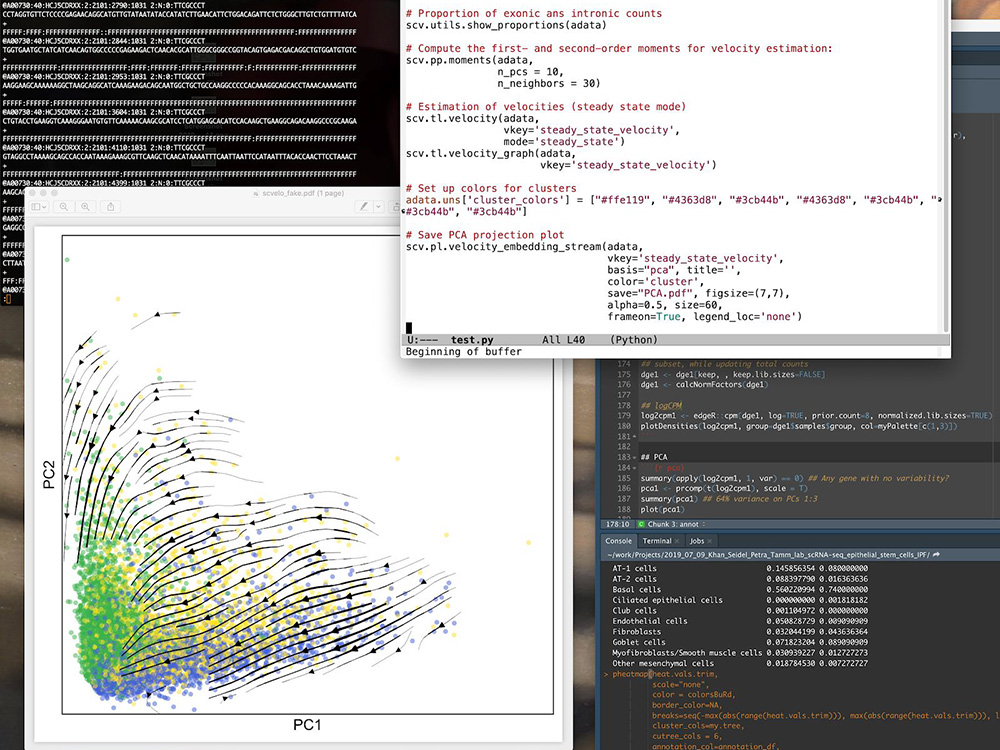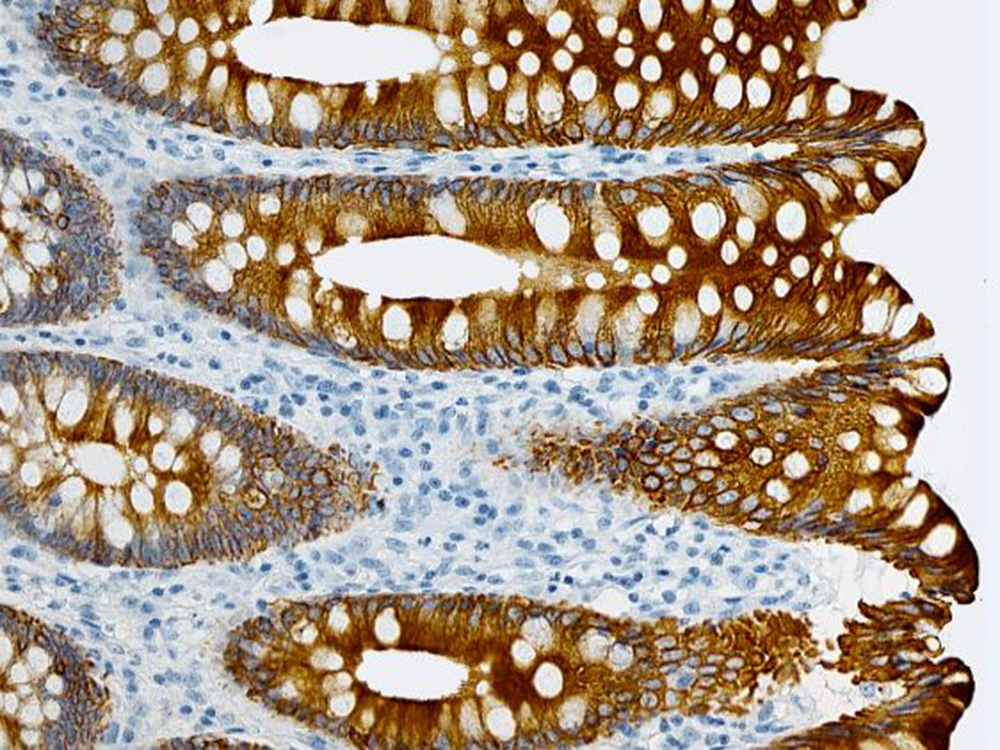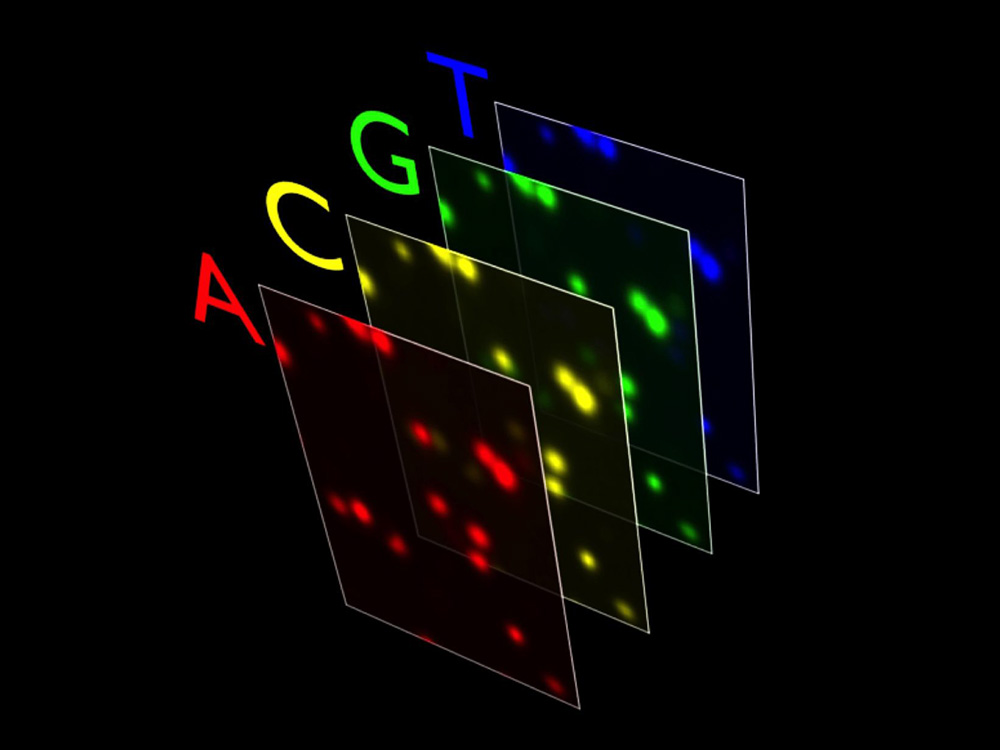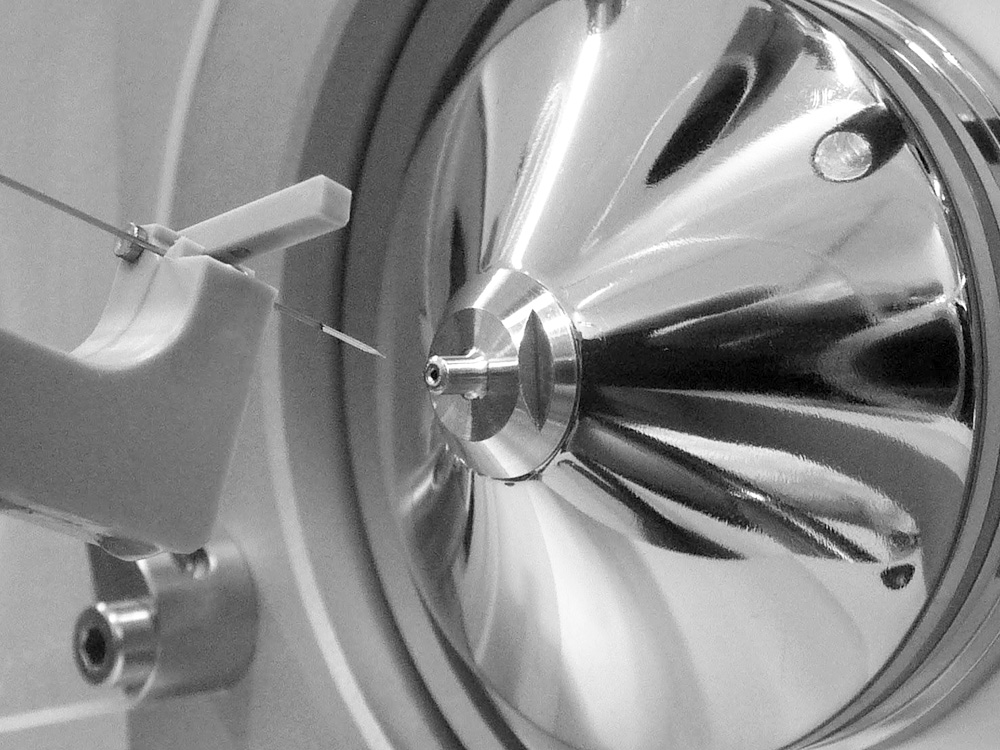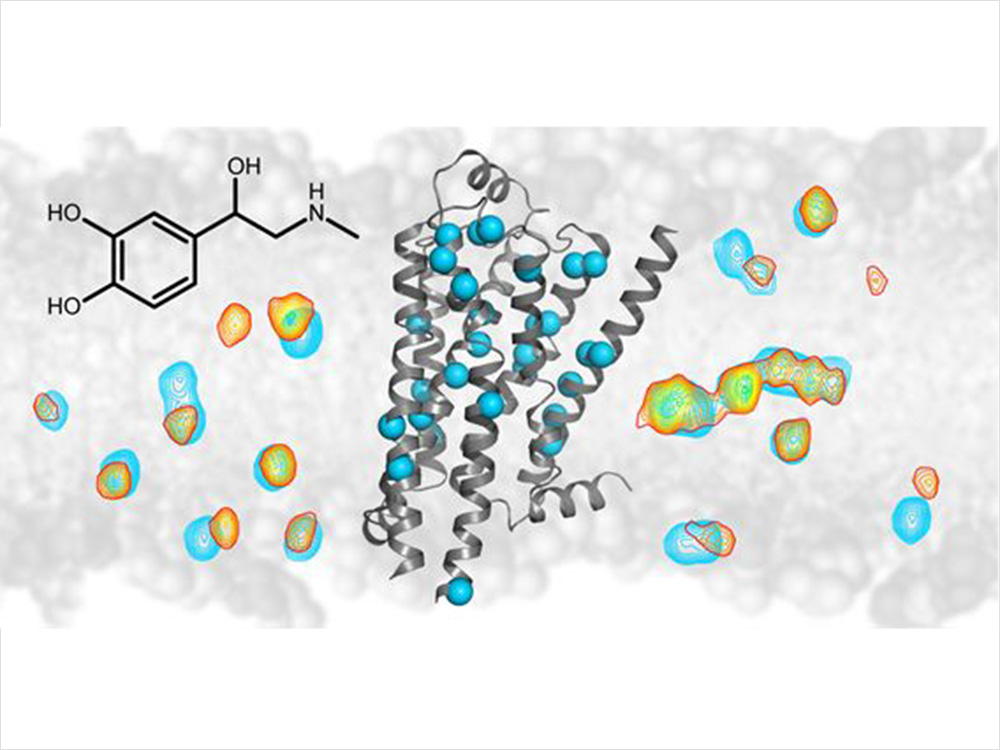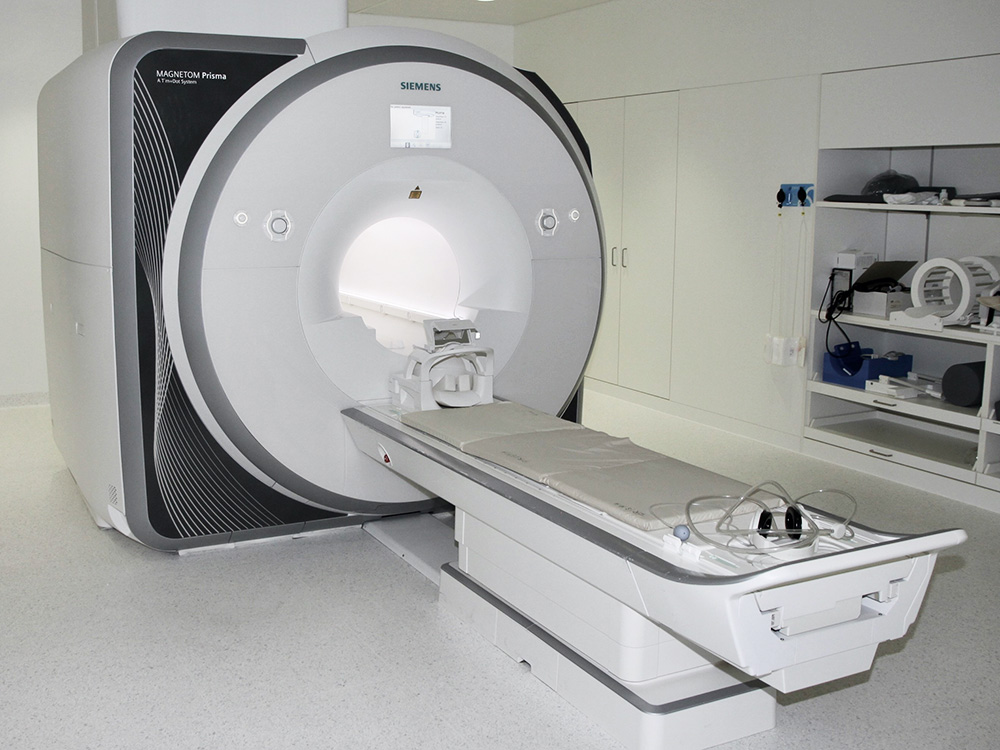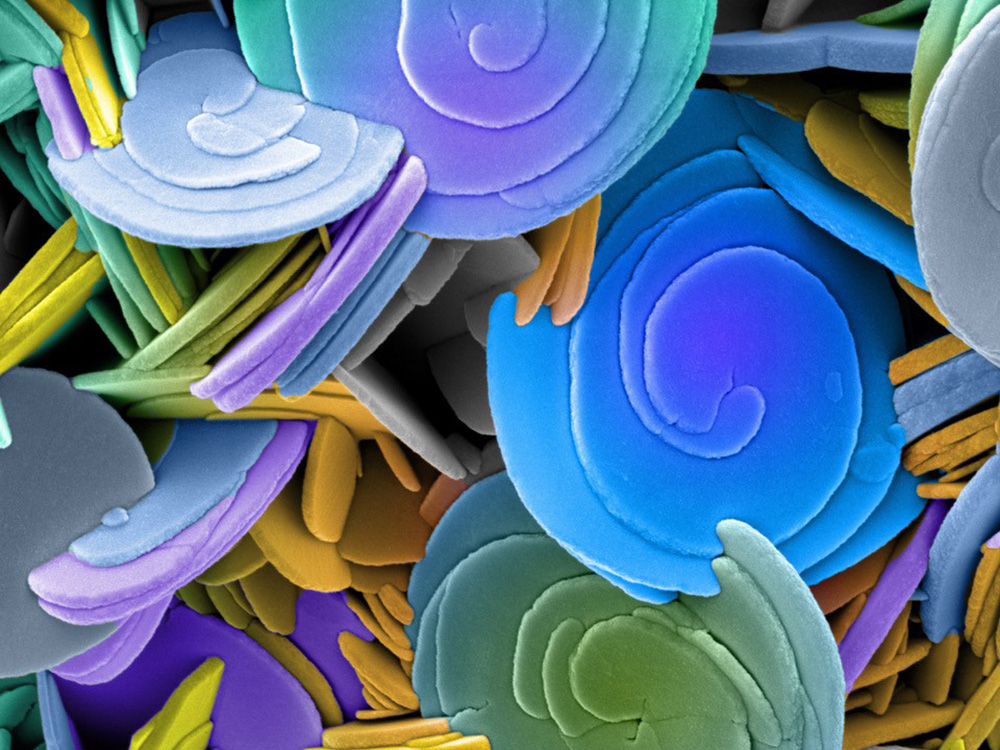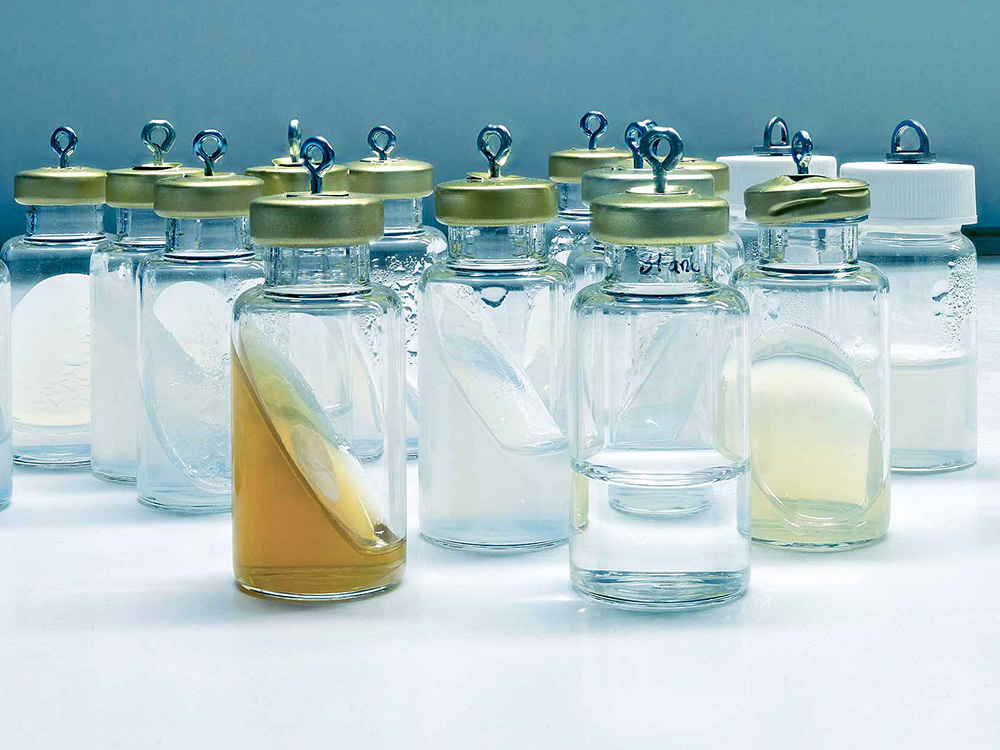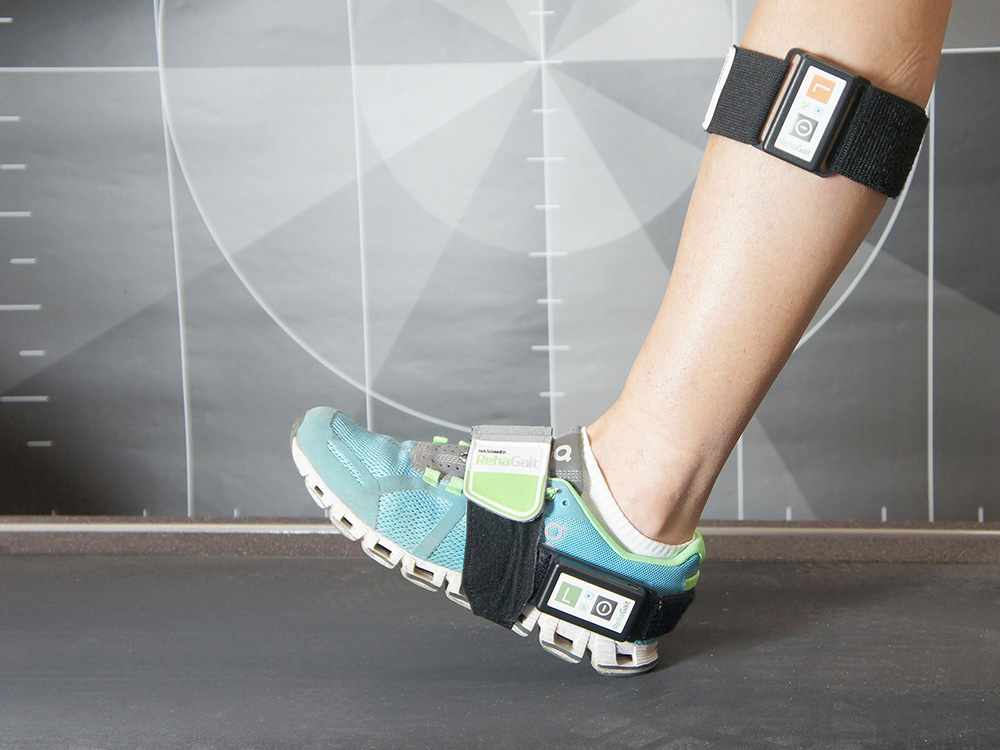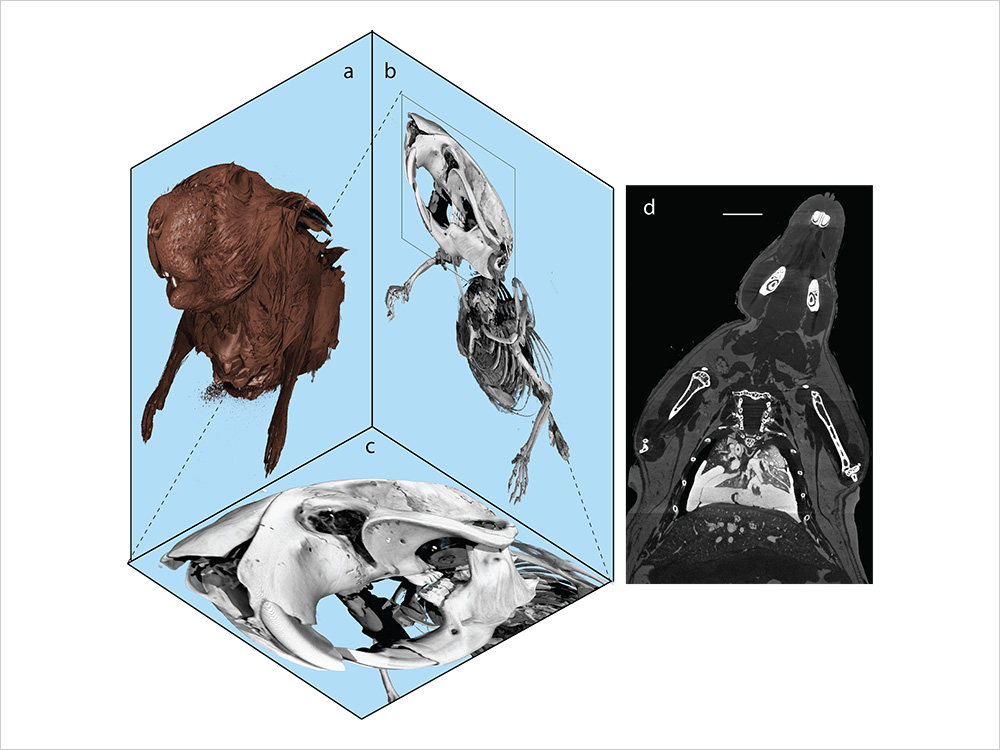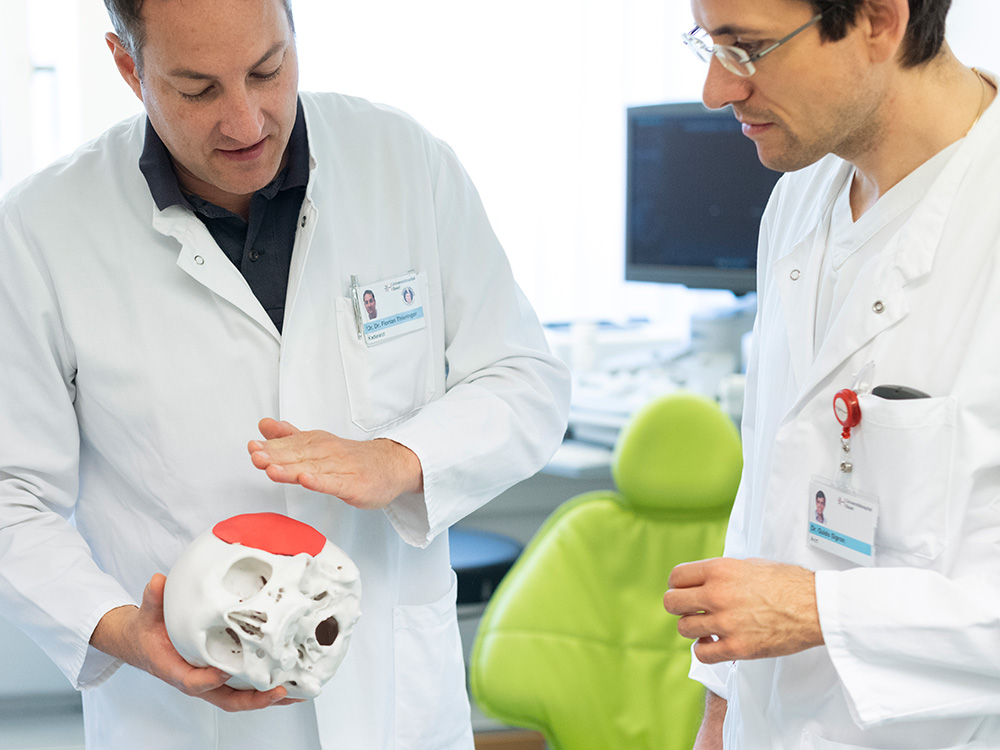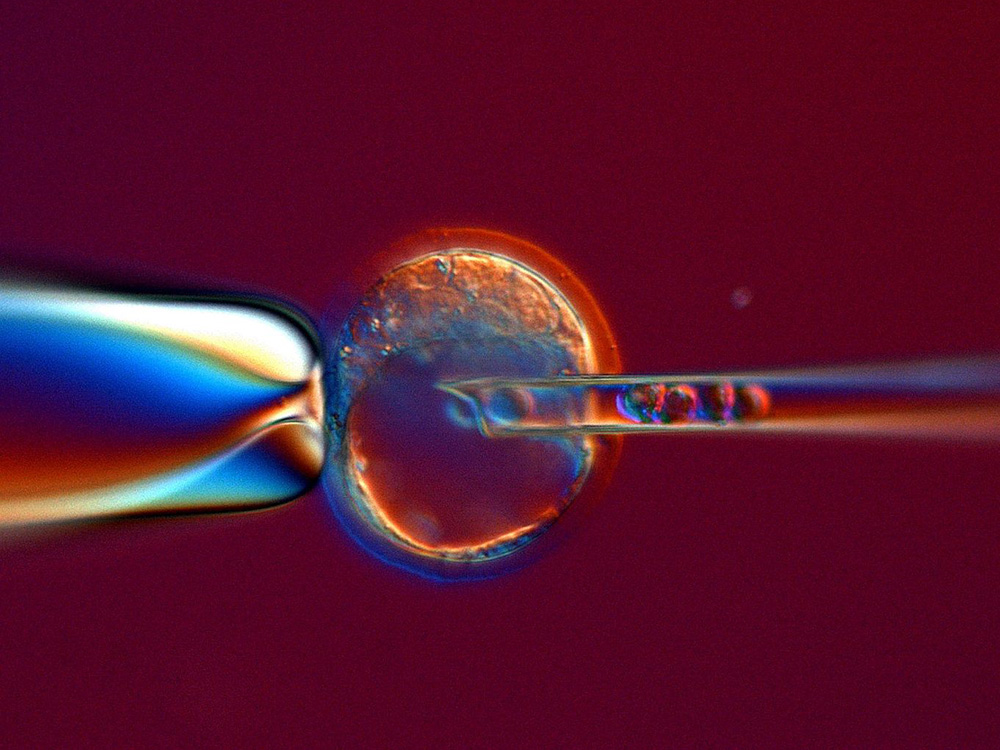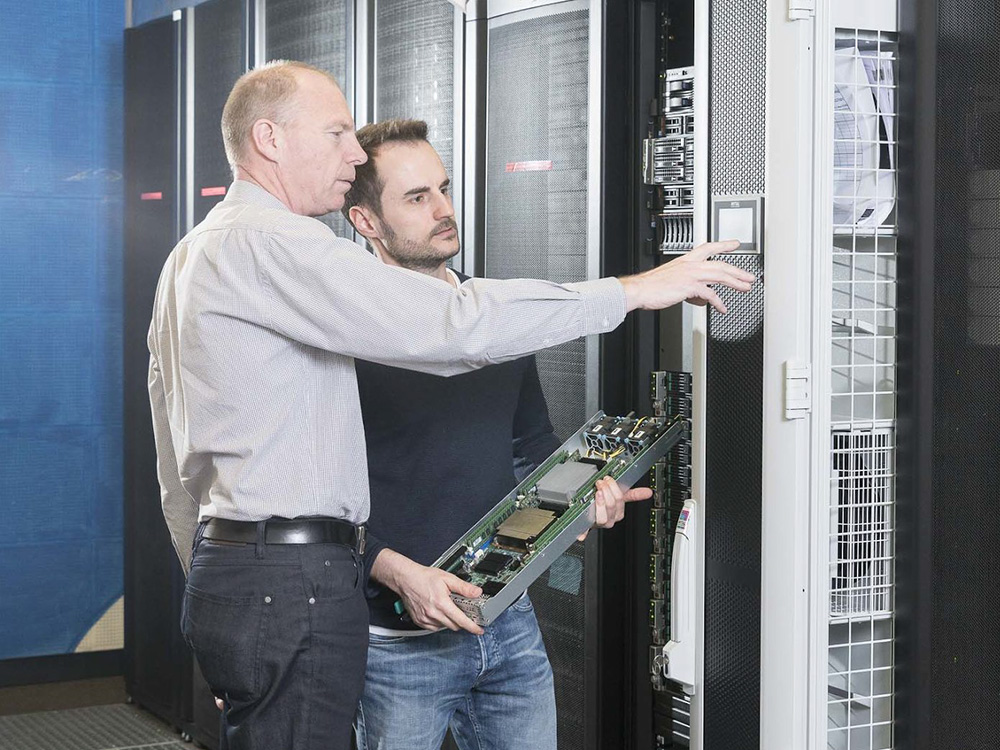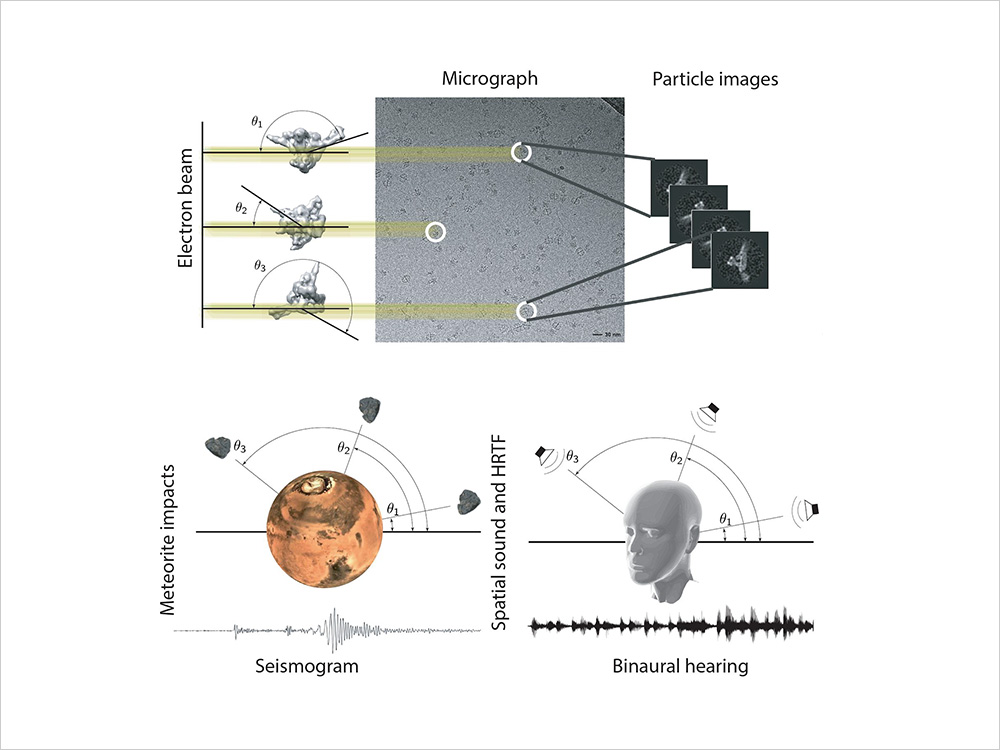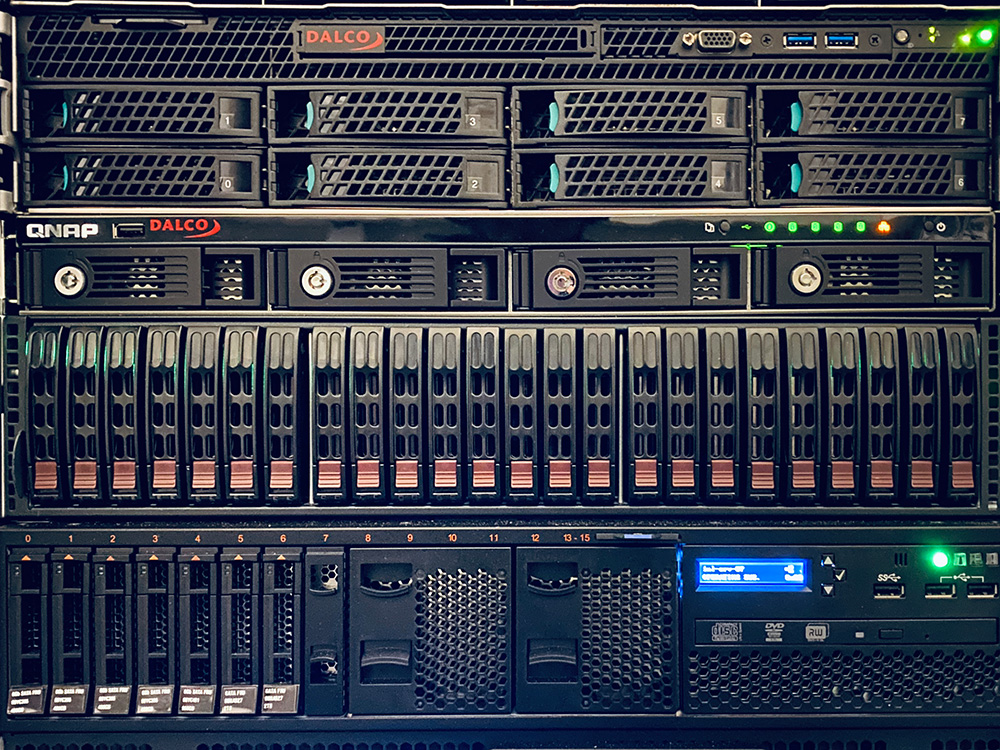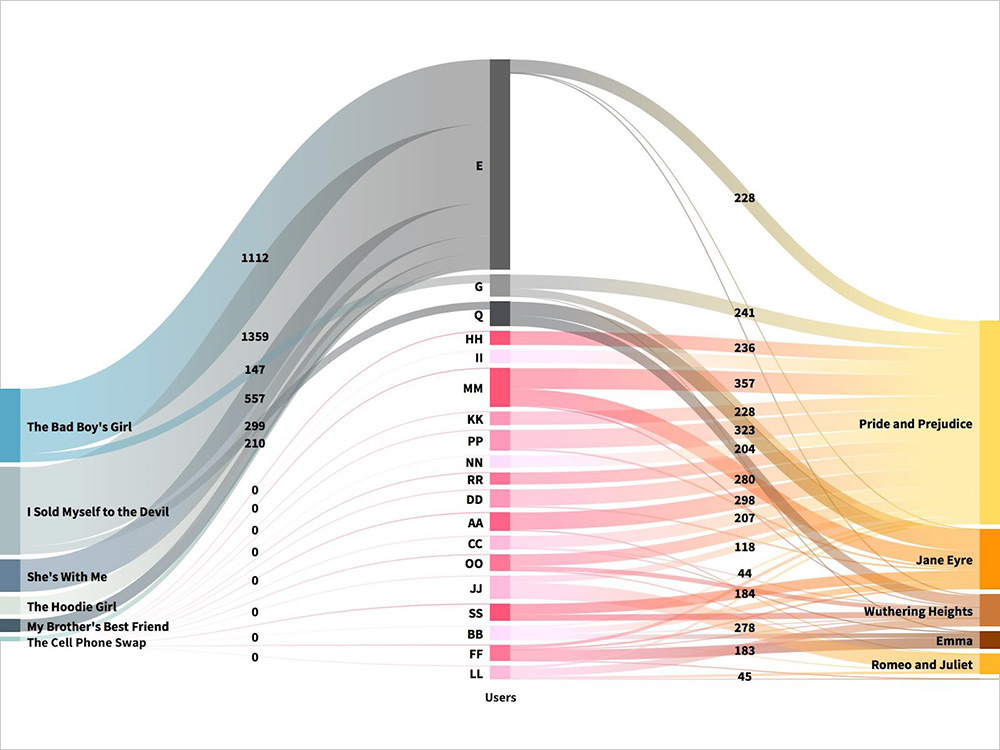Core Facilities
The University of Basel has state-of-the-art research infrastructures that are available to researchers and external users as service and technology centers within the framework of Core Facilities. Some cost-intensive infrastructures are assigned to a professorship as a shared facility and can be used within the framework of collaborations. As a comprehensive university, the University of Basel offers the opportunity to promote interdisciplinary collaboration and to research scientific topics with teams from different disciplines.
Core Facilities of the University of Basel
Microscopy Network Basel
The Microscopy Network Basel (MNB) is an association of academic microscopy facilities in the Basel region and is supported by the Departments of Biozentrum and Biomedicine of the University of Basel, the Department of Biosystems Science and Engineering (D-BSSE) of ETH Zurich and the Friedrich Miescher Institute (FMI). The MNB aims to foster collaborations and scientific exchange in the field of bioimaging by organizing courses, workshops and seminars to mutually utilize existing resources and infrastructures in the field of light microscopy.
BioEM Lab
The BioEM Lab at the Biozentrum offers high-resolution imaging techniques of macromolecules, cells and tissues using transmission electron microscopy (TEM and CryoTEM) and as 3D reconstruction of proteins and cells using single particle approach and electron tomography.
Director: Dr. Mohamed Chami
Imaging Core Facility
The Imaging Core Facility of the Biozentrum is a technology platform for the use of highly sophisticated light microscopes. It provides image analysis support to research groups and makes state-of-the-art microscopy techniques and software solutions available to scientists.
Director: Dr. Oliver Biehlmaier
Microscopy Core Facility
The Microscopy Core Facility of the Department of Biomedicine at the University of Basel provides equipment and expertise in the field of high-end microscopy and image analysis at two locations. The Facility supports researchers on a daily basis in the acquisition of everything from simple histology images to super-resolution microscopy in living cells or customized programs for automation and analysis.
Directors: Dr. Michael Abanto and Pascal Lorentz
Flow Cytometry Core Facility
The Core Facility Flow Cytometry of the Department of Biomedicine at the University of Basel is a state-of-the-art scientific platform that provides researchers with instruments and expertise and enables the use of current flow cytometry techniques in translational and basic research projects.
More than 300 researchers use ten flow cytometry analyzers (6 BC CytoFLEX and 4 BD Fortessas), five cell sorters (4 BD FACSAria™III and one BD FACSMelody™), three high-end spectral analyzers (Cytek® Aurora) and one imaging cytometer (AMNIS® ImageStream X Mk II).
Our team provides training on instrument operation, cell sorting procedures, experimental design consulting, data analysis support, and expert seminars.
Director: Dr. Morgane Hilpert
Contact: flowteam-dbm@unibas.ch
Good Manufacturing Practice (GMP) Core Facility
The GMP Facility for Advanced Therapies (GMP-FAT) of the Department of Biomedicine is an association of two GMP laboratories at the Zentrum für Lehre und Forschung and Klinikum 2 of the University Hospital Basel. The GMP-FAT Core Facility provides research groups with expertise, infrastructure and the Pharmaceutical Quality System (PQS) for the manufacture of Advanced Therapy Medicinal Products (ATMPs: products for somatic cell therapy, tissue therapy and gene therapy) used in phase I and II clinical trials.
Director: Dr. Anke Wixmerten
Bioinformatics
The Bioinformatics Core Facility is the competence center of the Department of Biomedicine in the field of computational biology and biostatistics. It offers tailor-made solutions for analysis, visualization and interpretation of complex biological data, especially in the field of high-throughput genomics and proteomics. Consulting and teaching complete the offer.
Director: Dr. Robert Ivanek
Histology Core Facility
The Histology Core Facility of the Department of Biomedicine provides services and support to researchers in the field of standard and high-end histology and histopathology, from sample preparation to automated image analysis.
Director: Dr. Diego Calabrese
Contact: histology-dbm@unibas.ch
Genomics Facility Basel
The Genomics Facility Basel is operated by the University of Basel and the Department of Biosystems Science and Engineering (D-BSSE) of ETH Zurich and offers services in the field of genome sequencing and analysis with state-of-the-art sequencing systems. Projects of all kinds – from tumor characterization at single cell resolution to the assembly of complete genomes of microorganisms, animals and plants – are supported.
Director: Dr. Christian Beisel
Proteomics Core Facility
The Proteomics Core Facility at the Biozentrum provides expertise and resources to researchers in the field of biological mass spectrometry and is involved in the development of new quantitative and qualitative methods for the analysis of proteins and their modifications.
Director: Dr. Alexander Schmidt
Nuclear Magnetic Resonance – Swiss High-field NMR Facility
The Biozentrum uses Nuclear Magnetic Resonance (NMR) to investigate the structure, dynamics and interactions of biomolecules in order to understand and modify their function, for example with regard to diseases or drugs. In addition, NMR spectroscopy is being further developed for the study of proteins.
Together with the University of Zurich and ETH Zurich, the Swiss High-field NMR Facility was established to provide researchers with access to the most powerful equipment in the field of high-field NMR spectroscopy. Researchers of the University of Basel can use the facility within a fixed quota of measurement time.
Director: Prof. Dr. Sebastian Hiller
Contact: Alexandra Meng
Magnetic Resonance Imaging (MRI)
At the University Hospital Basel, a 3 Tesla whole-body magnetic resonance tomograph (Siemens Magnetom Prisma) with a powerful gradient system (80 mT/m @ 200 T/m/s) and high field homogeneity (0.2 ppm at 40 cm DSV) is available for human studies. The system also has a second broadband amplifier for excitation of non-proton nuclei. The scanner is mainly used for research projects in Radiological Physics, but can also be shared by other research groups.
Director: Prof. Dr. Oliver Bieri
Nano Imaging Lab
The Nano Imaging Lab of the Swiss Nanoscience Institute (SNI) is a service platform for imaging and analysis of nanostructures. It has various scanning electron microscopes (SEM and cryo-REM), transmission electron microscopes (TEM) and atomic force microscopes (AFM). It also offers focused ion beam (FIB) technology, confocal microscopy and various spectroscopic analysis capabilities.
Director: Dr. Marcus Wyss
Microcalorimetry
The Core Facility Microcalorimetry of the Department of Biomedical Engineering (DBE) at the University of Basel offers the possibility to measure heat release or consumption from biological, chemical and physical processes with different calorimeters. The Core Facility Microcalorimetry has a strong focus on microbial metabolism and assessment of growth and metabolic activities of microbes even in small quantities in various sample including opaque and solid samples. The Core Facility also provides services for chemical of physical reaction if requested. At the DBE, Microcalorimetry is mainly used in biofilm research, diagnostics and assessment of antimicrobial efficacy of new materials or molecules. In addition, the stability and aging of biomedical materials and pharmaceutical preparation for example are measured under various conditions. The Core Facility is interested in developing new approaches for applying calorimetry in the fields of microbiology, pharmaceutical sciences and biomedical engineering, and is open to partners from academia and industry.
Director: Dr. Olivier Braissant
CADENCE | Clinical Biomechanics & Ergonomics Engineering
The Clinical Biomechanics & Ergonomic Engineering lab CADENCE at the Department of Biomedical Engineering (DBE) at the University of Basel provides support for innovative interdisciplinary research in clinical biomechanics, biomedical and ergonomics engineering, motion analysis and robotics. CADENCE offers a wide range of tools, including state-of-the-art marker-based and markerless motion capture systems, in-floor force plates, pressure distribution plate, an instrumented treadmill with adjustable incline and built-in force sensors, instrumented stairs with built-in force plates, wireless surface electromyography, wearable inertial sensors and pressure insoles for data capture outside the lab, an isokinetic dynamometer, and the novel 3D gait rehabilitation robot «FLOAT». Further services, such as personalized advanced data analytics and machine learning on movement analysis data may be provided. Expertise and services are available to clinical, biomedical, and sports academic groups as well as industry.
Director: Prof. Heide Elke Viehweger
Contact: cadence-dbe@unibas.ch
Micro- and Nanotomography
The Core Facility Micro- and Nanotomography (MiNa) of the DBE at the University of Basel offers the possibility to visualize objects non-destructively with micro- or even submicrometer resolution using hard X-rays. The nanotom® m system from phoenix|x-ray, GE Sensing & Inspection Technologies GmbH, Wunstorf, Germany, and the Skyscan 1275, Bruker microCT, Kontich, Belgium, are available. The three-dimensional data are so large that quantitative analysis is usually performed automatically. The Core Facility is also available to external users from science and industry.
Director: Dr. Georg Schulz
3D Print Lab
The 3D Print Lab and the Swiss MAM (Medical Additive Manufacturing) research group at the DBE work closely together on 3D surgical planning and medical 3D printing including bioprinting (3D printing of cells and support structures), high-performance materials, smart implants, image analytics and segmentation techniques. Patient-specific models are printed from MRI or CT data for use in the clinics of the University Hospital Basel.
Center for Transgenic Models
The Center for Transgenic Models (CTM) service platform provides researchers with comprehensive services and expertise in the field of transgenic animal models, in particular the generation and cryopreservation of mouse strains. CTM offers a variety of standard techniques and develops new gene delivery methods, professionally implementing the 3Rs principles for responsible animal experimentation.
Director: Dr. Pawel Pelczar
Contact: ctm@unibas.ch
sciCORE
sciCORE is the competence center for scientific computing and provides the infrastructure for high-performance computing, storage and processing of scientific data. sciCORE implements innovative computing solutions in close collaboration with researchers and offers training and consulting to scientists. sciCORE is also a Core Facility of the Swiss Institute of Bioinformatics (SIB) and one of the BioMedIT nodes supporting the Swiss Personalized Health Network (SPHN) project.
Director: Dr. Thierry Sengstag
Contact: scicore@unibas.ch
Center for Data Analytics (CeDA)
The Center for Data Analytics (CeDA) is an interdisciplinary competence center for quantitative data analysis at the University of Basel. The consulting and support services of the CeDA are provided by data analysts with expertise in biomedicine, natural sciences, and social sciences and humanities. The activities of the CeDA are coordinated by sciCORE, the Digital Humanities Lab (DHLab) and the Data Analytics Professorship at the Department of Mathematics and Computer Science.
Director: Prof. Dr. Ivan Dokmanić
Contact: Dr. Geoffrey Fucile
Swiss National Data and Service Center for the Humanities (DaSCH)
The DaSCH, Swiss National Data and Service Center for the Humanities is a national research infrastructure that guarantees long-term access to research data in the humanities according to FAIR principles. DaSCH is hosted by the University of Basel as an association on behalf of the SNSF. It is available to all researchers in Switzerland to keep qualitative humanities research data available online in the long term, even after the end of projects.
Director: Prof. Dr. Rita Gautschy
Contact: info@dasch.swiss
Research and Infrastructure Support (RISE)
The Core Facility Research and Infrastructure Support (RISE) supports researchers in the humanities and social sciences at the University of Basel in issues related to the design of computer-based research, the production and analysis of data, digital editions and user-oriented visualization of data, and the sustainable and open availability of data.
Director: Arno Bosse M.A
Contact: rise@unibas.ch
Further Links
- sciCORE | Center for Scientific Computing
- Center for Data Analytics (CeDA)
- Swiss Institute of Bioinformatics (SIB)
- Swiss Personalized Health Network (SPHN)
- Swiss National Data and Service Center for the Humanities (DaSCH)
- Research and Infrastructure Support (RISE)
- University Library Basel
- Digital Humanities Lab (DHLab)

